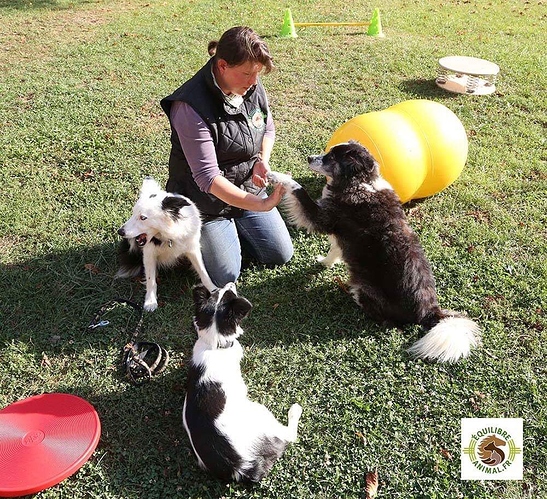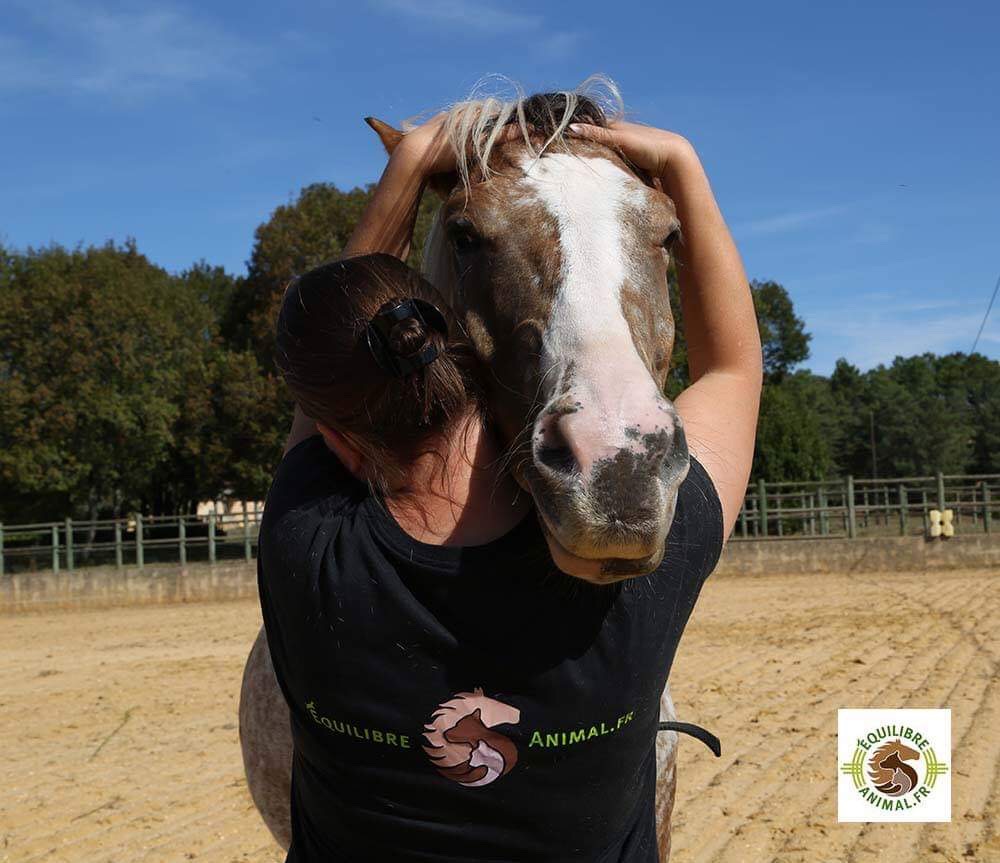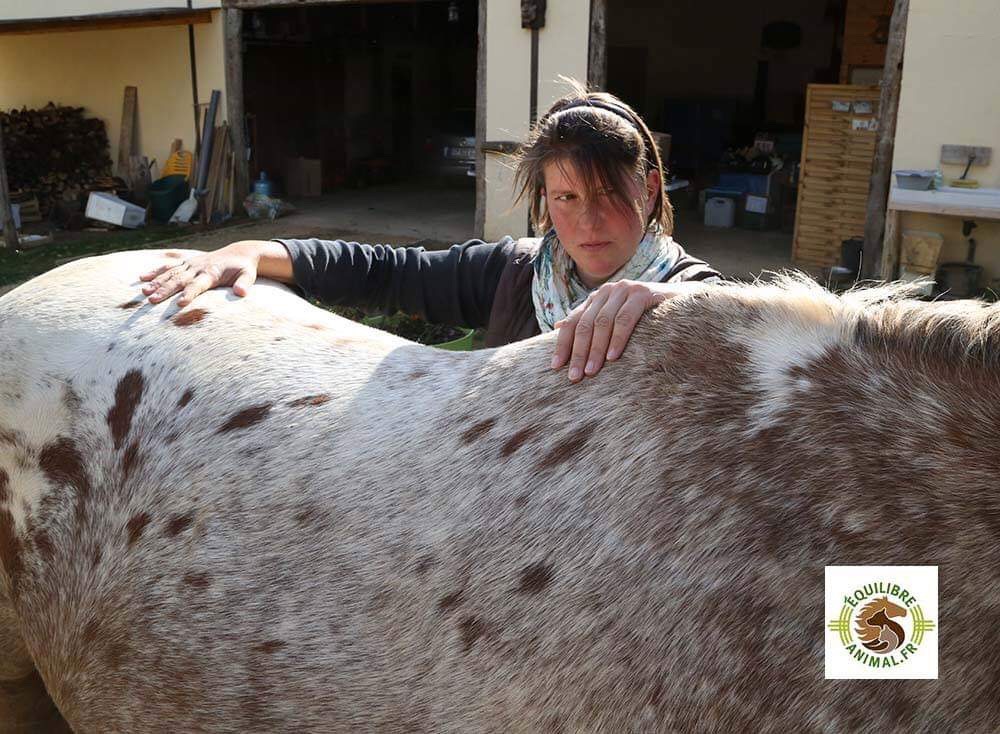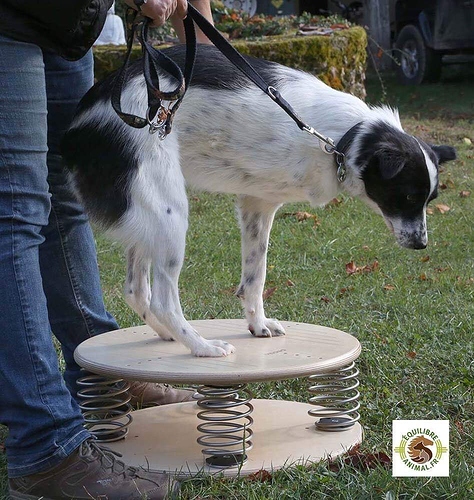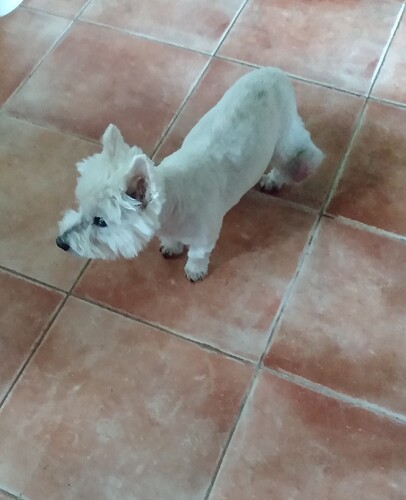*Sponsored Content*
As you know, we never normally promote anything on SF that we haven’t tried and tested ourselves, but having known Reija (and her dogs!) personally for a very long time now, and as she’s been a SF member since the start, I am more than happy to vouch for her capabilities!
Like many SF members we are an animal owning and loving household. I’m also a big fan of more alternative treatments for both humans and animals; sadly in many areas it’s hard to find appropriate practitioners and so I was very pleased to hear that long time SF member Reija Feldmann is now offering a range of services as part of her business “Équilibre Animal”.
Reija is based in the middle of the Dordogne, in the south of Perigueux, and is happy to travel throughout the Dordogne as well as the surrounding departments as she prefers to see clients in their home environment. She takes a holistic approach analysing the animal as a whole, as well as its environment and the initial treatment can take around one to two hours.
So what does she do? Reija provides a range of complementary therapies including laser and magnetic field therapy for horses, cats, dogs and other animals. She is fully qualified having studied in Germany for three years and has diplomas in osteopathy, acupuncture, physiotherapy and homoeopathy. Her osteopathy treatments include craniosacral therapy (for the head, spine and sacrum), fascia therapy and visceral osteopathy. She explains, “It is more than just the manipulation of the joints; it is also possible to treat organs, the diaphragm or tissues. For acupuncture I use a laser pointer, which is much easier, safer and quicker than needles. The laser therapy and magnetic therapy can be used for treating wounds, oedema, scarring, pain, blockages and stiffness, all of which may occur for example, after hunting, competitions, accidents, surgery or just as part of the ageing process.
I also hold French dog behaviourist qualifications, the “Educateur comportementaliste canin” which includes the “Certificate de capacité” meaning that I am permitted to train dogs and run a kennel in France. I run a “Pension canine familiale” which is a dog boarding service where the dog stays in the house with the family. I only take small groups (not more than nine dogs), the dogs live together in the house and garden and we go for walks. I also offer training or therapy for the dog during his stay and have a separate kennel for dogs with behaviour or social problems. In terms of training I cover behavioural problems at home, on the lead, with other dogs and with other animals.
My dog training is always positive, no drill. I want to encourage the relationship between human and dog. I analyse the dog’s problem(s) and help both human and dog to find a way forward to a positive and successful relationship.
I also do “Degility” for dogs which is similar to traditional agility but is therapy based.
I have a small course set up at home and can also transport some obstacles if required. We work calmly and slowly on no more than three obstacles and it helps with coordination and self-confidence. It is ideal for older dogs, dogs with disabilities or injuries and former hunting dogs”.
Reija is a great believer in “Adopt - don’t shop” and owns three rescue dogs. One had been abused and was rescued here in France, the other two are street dogs from Romania, one of which had lost a leg and his tail in an accident. She also fosters for various different French dog rescue groups and mainly takes on the older dogs or ones with health issues, both of which are usually harder to re-home.
Reija offers a free initial consultation (apart from travel costs if over 15 km) and will let you know the tarifs after that. So if you have a problem dog, need a complementary therapist for your beloved pet or just want to leave your dog in a great environment when you go away, you can get in touch with @Reija_feldmann via her website.
